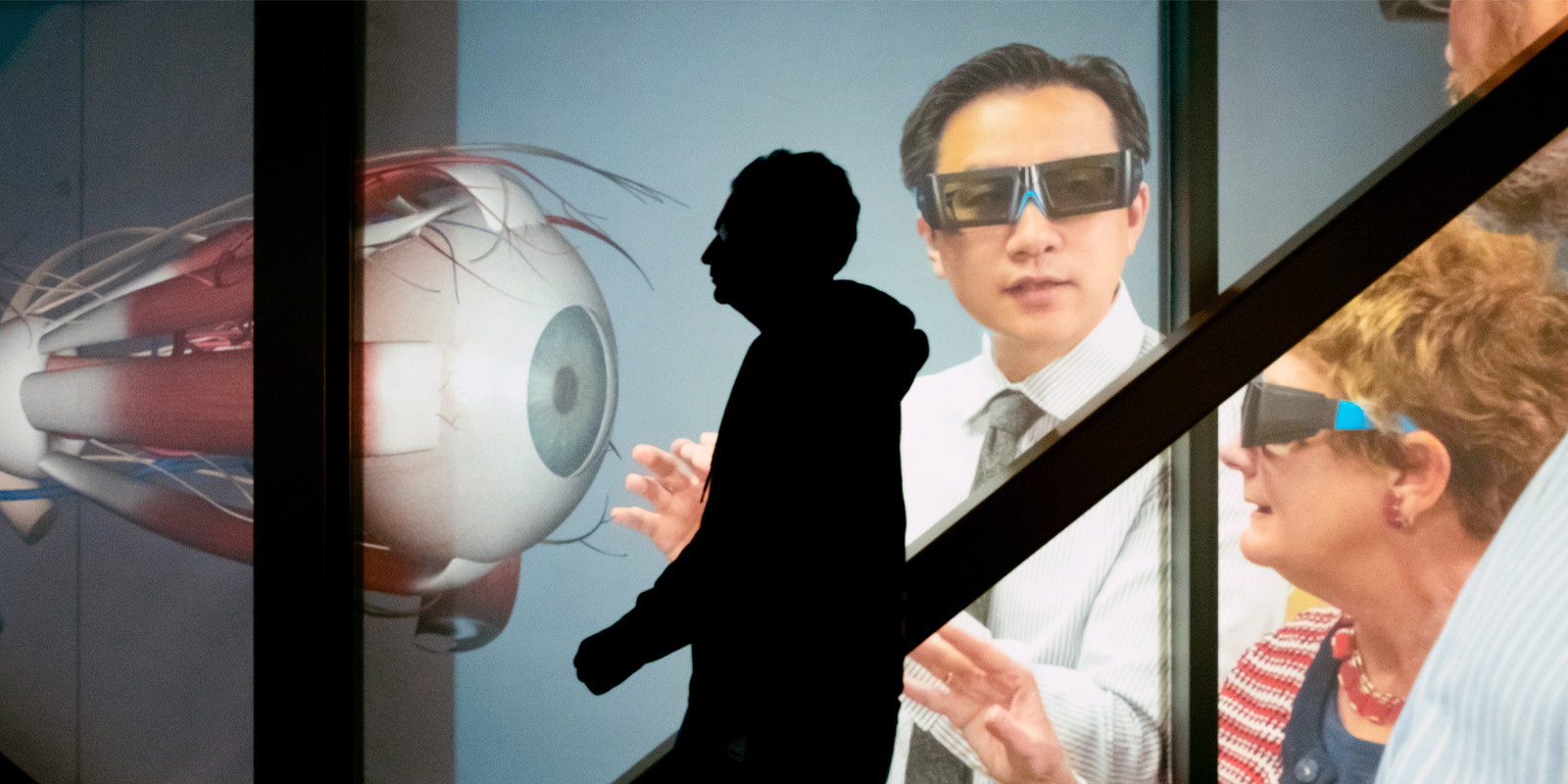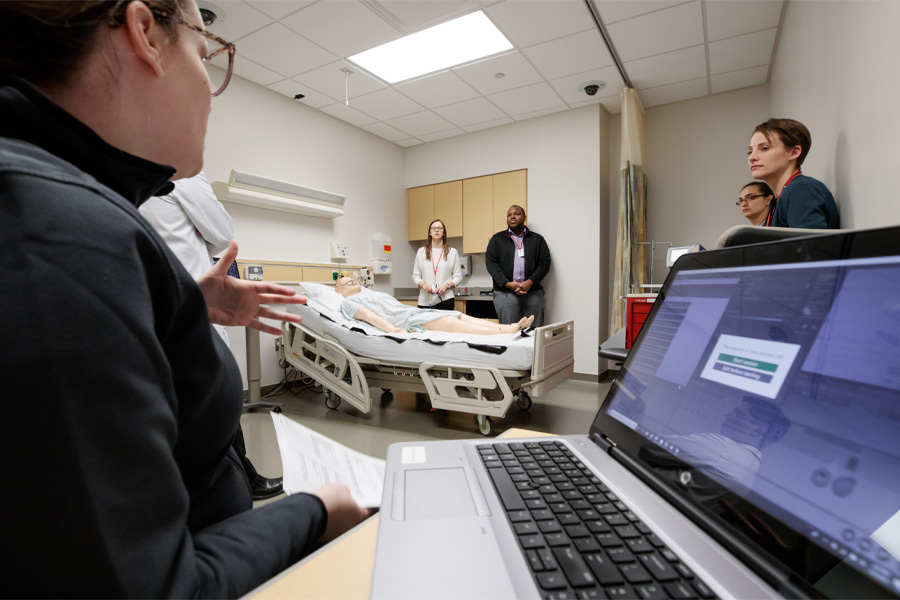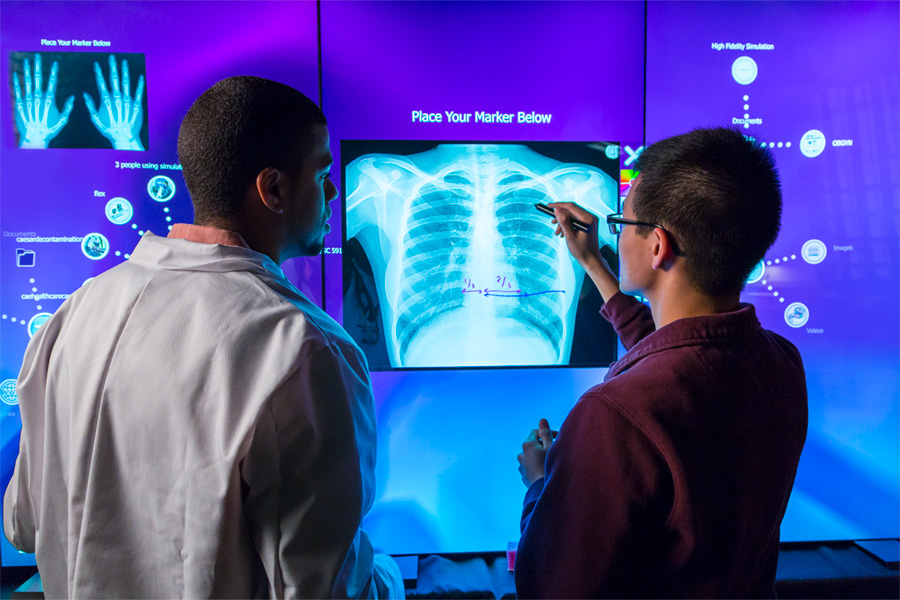PhD in Biomedical Informatics
Biomedical Informatics combines IT management, computer science, and applied computing with clinical science, biological science, bio-imaging, and public health.

Why Study Biomedical Informatics?
The Biomedical Informatics Graduate Program is a multidisciplinary, interprofessional effort integrating the theory and practice of information technology management, computer science, decision support systems, and applied computing with clinical science, biological science, bio-imaging, and public health. Students study and pursue “the effective uses of biomedical data, information, and knowledge for scientific inquiry, problem solving and decision making, motivated by efforts to improve human health.” (AMIA).
Why Study Biomedical Informatics at UNMC?
The joint UNMC/UNO Biomedical Informatics program brings together existing informatics education programs at multiple campuses into a comprehensive interdisciplinary education program including the MSIA Health Informatics Program, the MSIA Pathology Bioinformatics program, the College of Public Health and the UNO Bioinformatics and Public Health Informatics efforts.
The strength of this joint program co-located at UNMC and UNO lies in the ability to leverage expertise across the University of Nebraska campuses to provide a strong educational & research program with strengths in biologic, healthcare and technological aspects of biomedical informatics.
Individualized programs of study are designed to accommodate students' existing knowledge and career goals. Distance options (telephone conferencing, virtual network, and e-learning tools) are available for most courses. Research opportunities exist in the basic sciences at UNMC, information technology at UNO, and applied sciences at the College of Public Health and the College of Medicine at UNMC.
Program Snapshot
Collaborative Education
The Biomedical Informatics Program represents a collaborative effort between the University of Nebraska campuses. Faculty from the Omaha, Lincoln, and Medical campuses provide support. Courses are offered at the University of Nebraska Medical Center and the University of Nebraska Omaha's Peter Kiewit Institute.
Program Goals
This program offers new students a very individualized experience to help prepare them for their future career. The goals of this program include the following:
- To lead innovative interdisciplinary research and development in bioinformatics
- To prepare graduate students to conduct advanced basic and applied research, to address local, national and international needs in health information and communications technology
- To prepare students to be leaders in academic research and health care
Careers & Outcomes
Graduates from the Biomedical Informatics program are in high demand as there a great need for experts with appropriate training. Jobs are available as programmers and data analysts to senior-level scientists and research directors; employment is available with private & public industries, research institutions, government institutions, and universities around the globe. Example job titles include:
- Staff Scientist in Biomedical Informatics
- Research Associate in Biomedical Informatics
- Clinical Data Analyst
- Biomedical Information Analyst
- Informatics Analyst
- Clinical Informatics Project Manager
- Data Scientist
Related Programs
Students interested in this program may wish to explore:

